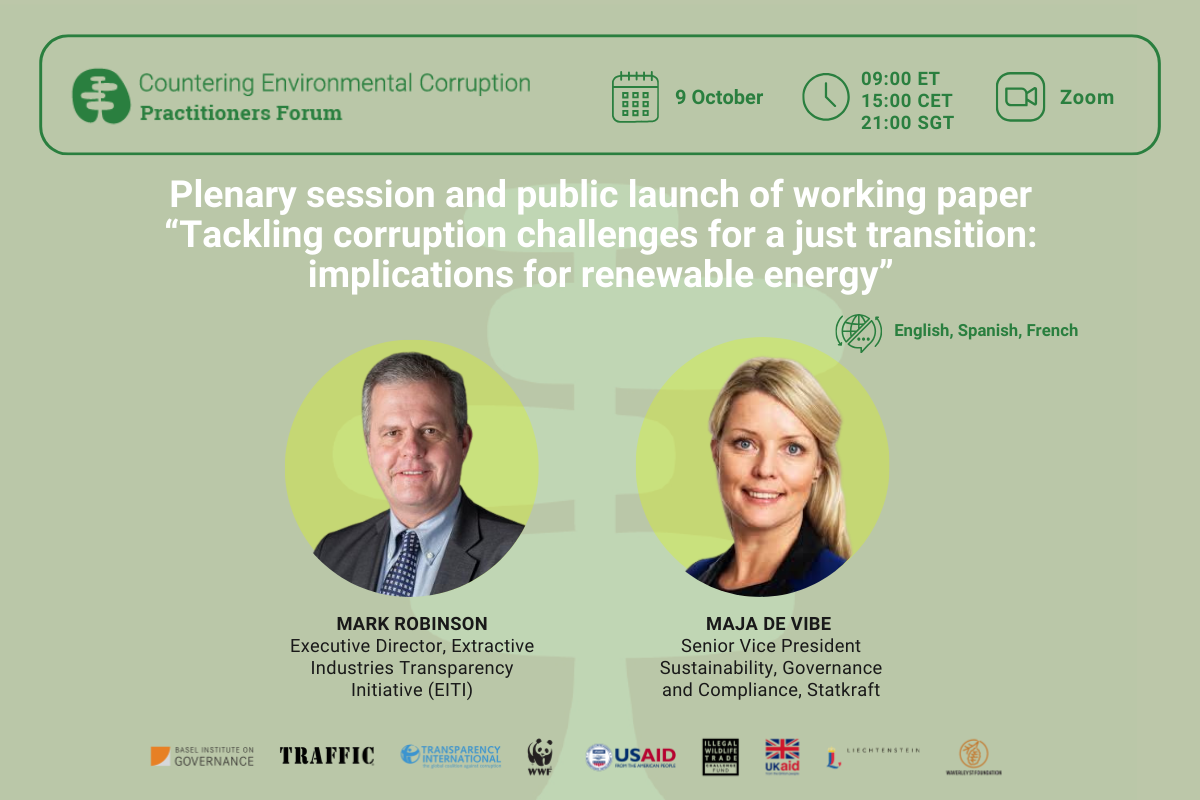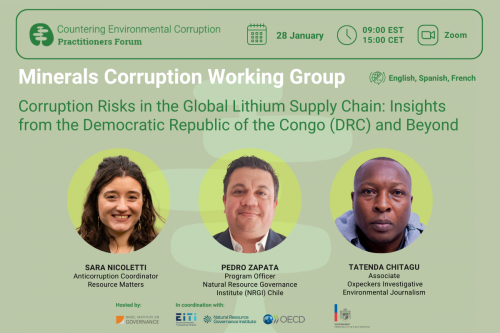Tackling corruption challenges for a just transition: implications for renewable energy

This plenary session of the Countering Environmental Corruption Practitioners Forum will serve as the public launch of a groundbreaking working paper on Good governance and the just transition: Implications for renewable energy companies.
Afterwards, a dynamic panel discussion with three experts will delve into the challenges faced by civil society and the private sector in navigating corruption risks within renewable energy projects.
During the 1.5-hour session, we’ll explore key similarities with other sectors and offer practical solutions to enhance transparency, strengthen governance and ensure accountability. This session promises insightful discussions on the path to a more just and sustainable transition.
Featured speakers
Moderator: Juhani Grossmann
Speakers and report authors:
- Mark Robinson, Executive Director, Extractive Industries Transparency Initiative (EITI)
- Maja de Vibe, SVP Sustainability, Governance and Compliance, Statkraft
Respondents:
- Luca Maiotti, Policy Analyst, OECD
- Irene Lucius, Regional Conservation Director, WWF Central and Eastern Europe
- Alexia Ruvoletto, Head of Secretariat, Solar Stewardship Initiative
Details
- Date: 9 October 2024
- Time: 09:00 ET, 15:00 CET, 21:00 SGT
- Language: English with simultaneous interpretation in Spanish and French
- Open to: Members of the Countering Environmental Corruption Practitioners Forum and all those interested in joining
Background
Ensuring a just energy transition is crucial to gaining public trust and support, which is essential for the success of the green transition and achieving the COP28 target of tripling renewable energy capacity by 2030. However, corruption risks – ranging from lack of transparency in project financing and land acquisitions to bribery in the procurement process – pose significant threats to the integrity and effectiveness of renewable energy initiatives.
Without addressing these challenges, the global shift toward clean energy may fail to deliver equitable benefits, particularly to vulnerable communities that are often left out of decision-making processes.
Links




